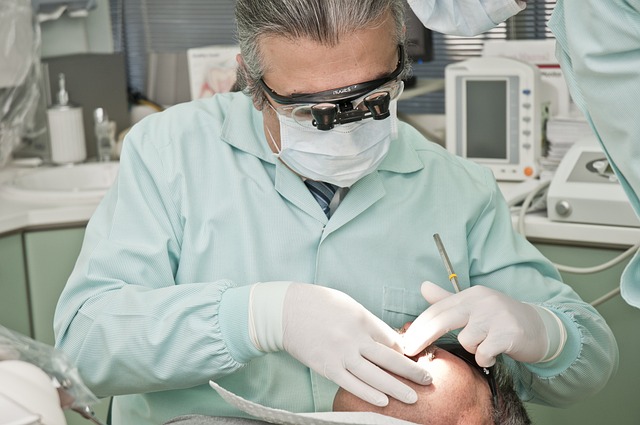
Oral health is often a neglected part of our daily wellness routine, yet it significantly impacts our overall health. Issues such as gum bleeding, tooth decay, oral microbiota imbalances, and nutritional deficiencies not only affect the aesthetics of your smile but can also be signs of deeper underlying health issues. Understanding the connections between these oral health concerns and your diet can provide insight into preventing and addressing them. This article delves into the causes of these problems, their links to nutrition, and provides practical advice for maintaining a healthy mouth through balanced nutrition and proper oral care.
Why Do Gums Bleed While Brushing?
One of the most common and concerning symptoms people face when brushing or flossing is bleeding gums. While it is easy to dismiss this as a minor issue, it could indicate something more serious. Bleeding gums may suggest:
Gingivitis
Gingivitis is the earliest stage of gum disease caused by the accumulation of plaque and tartar on the teeth, leading to gum irritation and inflammation. If left untreated, gingivitis can develop into more severe forms of gum disease, like periodontitis, which can result in tooth loss.
Vitamin Deficiencies
A deficiency in certain vitamins can cause gums to become more susceptible to bleeding. Vitamin C, in particular, plays a crucial role in collagen production and the integrity of your gums. A lack of vitamin K can also contribute to excessive bleeding due to its role in blood clotting.
Poor Oral Hygiene
If plaque and food particles are not effectively removed through brushing and flossing, they can build up along the gum line, leading to inflammation and bleeding. Regular dental cleanings help remove stubborn plaque and prevent gum disease.
Hormonal Changes
Pregnancy, menopause, and menstruation can all alter hormonal levels, making the gums more sensitive and prone to bleeding. Pregnancy gingivitis is particularly common and should be managed with professional care.
Systemic Health Conditions
Certain health conditions such as diabetes, blood disorders, or weakened immune systems can increase the risk of bleeding gums. Individuals with these conditions may have a harder time fighting off infections, including those that affect the gums.
Prevention and Care for Bleeding Gums
Brush and Floss Regularly:
Using a soft-bristled toothbrush and fluoride toothpaste will help keep the gums and teeth clean without irritating the gums.
Increase Vitamin Intake:
Incorporate foods rich in vitamins C and K, like citrus fruits, leafy greens, and bell peppers, to help nourish your gums.
Use Antiseptic Mouthwash:
This helps eliminate bacteria and reduce inflammation around the gums.
Visit the Dentist:
Regular dental visits are essential for preventing and treating gum issues before they worsen.
Oral Microbiota: The Invisible Balance
The mouth is home to an extensive and diverse community of microorganisms, including bacteria, fungi, and viruses. These microbes form a delicate balance that supports healthy oral function. When the balance is disrupted by poor oral hygiene, diet, or systemic health issues, it can lead to various oral health problems, including:
Tooth Decay
Tooth decay is a process in which the bacteria in your mouth produce acids that erode the enamel on your teeth. This is commonly caused by a diet high in sugar and refined carbohydrates, which feed harmful bacteria.
Gum Disease
Imbalance in the oral microbiota can also lead to gum disease, a condition that ranges from mild gingivitis to severe periodontitis. This imbalance occurs when harmful bacteria overwhelm the beneficial ones, leading to inflammation and infection of the gums.
Bad Breath
Oral bacteria, especially in areas of poor hygiene, can produce foul-smelling compounds that lead to halitosis, or chronic bad breath. These compounds include sulfur-containing compounds, which thrive on decaying food particles and bacteria.

How to Support Healthy Oral Microbiota
Limit Sugar Intake:
Sugar acts as food for harmful bacteria. Reducing sugar consumption helps keep the bacterial balance in check.
Eat Probiotic-Rich Foods:
Probiotics, found in fermented foods like sauerkraut, kimchi, and non-dairy yogurt, can promote a healthy balance of bacteria in the mouth.
Stay Hydrated:
Drinking plenty of water encourages the production of saliva, which naturally fights bacteria and helps keep your mouth clean.
Brush and Floss Properly:
Regular brushing and flossing help remove food particles and plaque that feed harmful bacteria.
Tooth Decay and Nutritional Errors
Tooth decay, or cavities, is one of the most common oral health issues, but it can be prevented with proper care. While poor oral hygiene is a major factor, nutrition also plays a significant role in the development of tooth decay.
Foods That Contribute to Tooth Decay
Sugary Snacks and Beverages:
Soda, candy, and baked goods contain sugars that feed the bacteria in your mouth, leading to the production of acids that erode tooth enamel.
Acidic Foods:
Citrus fruits and vinegar can weaken enamel when consumed in excess.
Sticky Carbohydrates:
Foods like crackers and white bread get stuck in the teeth and provide a constant food source for bacteria.
Nutritional Tips to Prevent Tooth Decay
Increase Calcium and Phosphorus:
These minerals are essential for healthy teeth. Non-dairy sources include leafy greens, tofu, almonds, and sesame seeds.
Consume Vitamin D:
Vitamin D is crucial for the absorption of calcium. You can find it in mushrooms, fortified plant milks, and sunlight exposure.
Chew Sugar-Free Gum:
Gum stimulates saliva production, which helps wash away food particles and neutralizes acids in the mouth.
Vitamin Deficiencies and Oral Health
A lack of certain vitamins can manifest in the form of oral health issues. Common vitamin deficiencies linked to oral problems include:
Vitamin C Deficiency
Vitamin C is essential for the production of collagen, a protein that supports the integrity of your gums. A deficiency in vitamin C can lead to weakened gums, causing them to bleed and become swollen. Severe deficiency can result in scurvy, a condition characterized by swollen, bleeding gums, and loose teeth.
Vitamin B Deficiency
B vitamins, especially B12, B6, and folic acid, are necessary for the proper functioning of the mucous membranes in the mouth. A lack of these vitamins can cause sores, a swollen tongue, and mouth ulcers.
Iron Deficiency
Iron is important for oxygenating tissues, including the gums. A deficiency can lead to pale gums and mouth sores, and it can even make you more susceptible to gum disease.
Foods to Combat Vitamin Deficiencies
For Vitamin C:
Citrus fruits, strawberries, broccoli, and bell peppers.
For B Vitamins:
Leafy greens, whole grains, avocados, and nutritional yeast.
For Iron:
Lentils, chickpeas, quinoa, and dark leafy greens.

Recipes for a Healthier Smile
Incorporating oral health-boosting ingredients into your diet can be both delicious and beneficial. Here are a few recipes that can help you improve your oral health while satisfying your taste buds.
Vitamin C Boost Smoothie
This smoothie is packed with vitamin C to help keep your gums strong and healthy.
Ingredients:
- 1 orange, peeled
- 1 cup spinach
- ½ cup frozen pineapple
- 1 tablespoon chia seeds
- 1 cup water
Instructions:
- Blend all ingredients until smooth.
- Enjoy this refreshing smoothie in the morning for a burst of nutrients.
Tooth-Friendly Energy Bites
These energy bites provide a healthy, tooth-friendly snack that’s free from refined sugars.
Ingredients:
- 1 cup oats
- 2 tablespoons almond butter
- 1 tablespoon ground flaxseed
- 1 tablespoon maple syrup
- ¼ cup dried cranberries (unsweetened)
Instructions:
Mix all ingredients, roll them into balls, and refrigerate for a few hours. These bites are perfect for a quick, healthy snack that supports both your energy levels and your oral health.
The Connection Between Systemic Health and Oral Health
Maintaining oral health is not just about brushing and flossing—it’s also about taking care of your overall health. Several systemic conditions can negatively affect oral health, and conversely, poor oral health can exacerbate certain health issues:
Heart Disease:
Chronic gum disease and inflammation have been linked to an increased risk of cardiovascular issues.
Diabetes:
Uncontrolled diabetes can lead to gum disease, and gum disease can make it harder to manage blood sugar levels.
Pregnancy Complications:
Women with periodontal disease may have a higher risk of preterm birth and low birth weight.
Conclusion
Taking care of your oral health goes beyond just brushing your teeth. By addressing factors like vitamin deficiencies, managing your diet, and maintaining a balanced oral microbiota, you can prevent common oral health issues like gum bleeding, tooth decay, and bad breath. With the right nutritional support, you can achieve a healthy smile that reflects your overall well-being. Remember, your oral health is a reflection of your overall health, so take care of it just as you would any other part of your body.
Subscribe to our newsletter, follow us on social media to let us know how you’re working towards a balanced life!
Food Allergies: Causes, Symptoms, and Management
Food allergies and sensitivities are...
Unintentional Weight Loss
Unintentional weight loss can be distressing,...
The Negative Impacts of Plastic Usage on Health and the Environment
Plastic has revolutionized modern life,...
The Impact of Social Media on Body Image: How It Affects Women’s Health
Social media has transformed how we connect,...
Why Women Need Nutrition Counseling Beyond Weight Loss
Women face unique challenges when it comes to...
The Benefits of Journaling for Mental Health
Journaling has gained recognition as a powerful...
Minimalism and Health: The Effects of a Minimalist Lifestyle on Mental and Physical Well-being
Living in a world where consumerism and constant...
Physical activity: Cardio, Strength Training, Yoga, and Pilates
Engagement in regular physical activity is...
Women’s Hormonal Balance: Nutrition, Lifestyle, and Key Strategies for Optimal Health
Introduction Women's hormonal balance is a...










